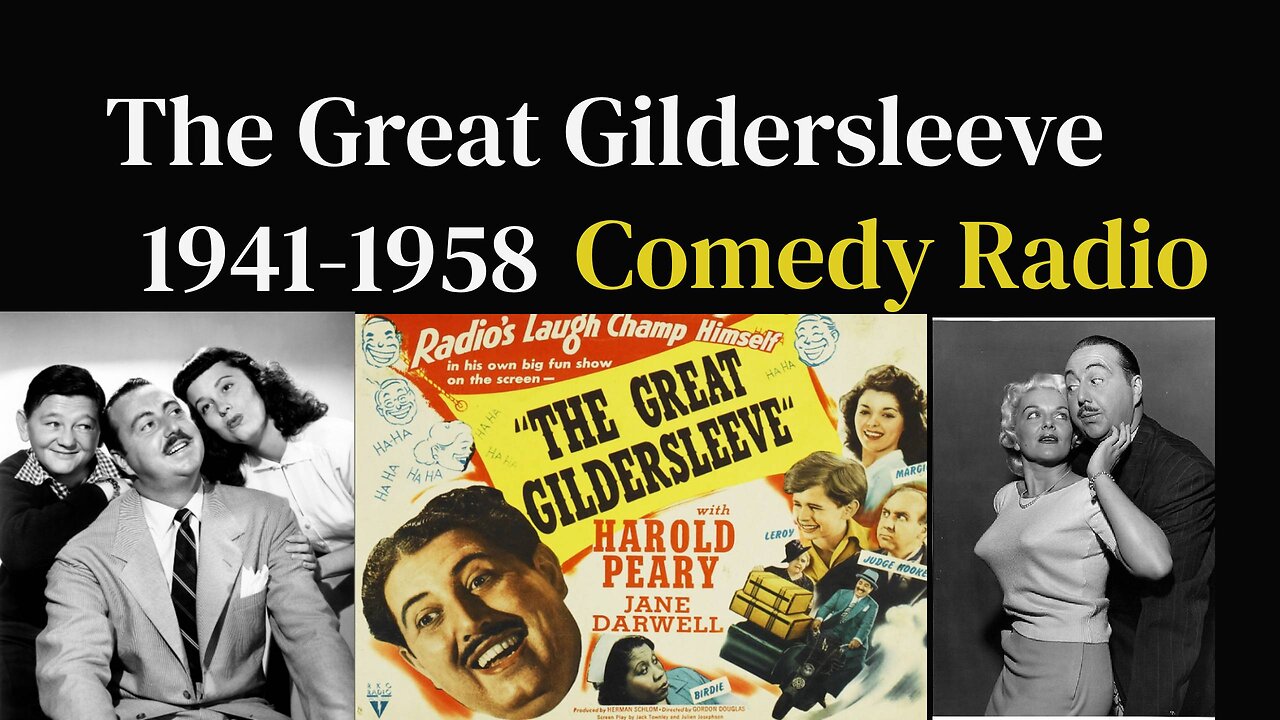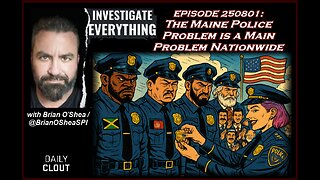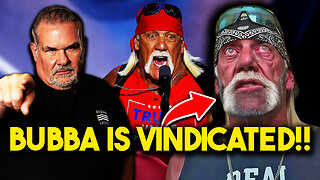Premium Only Content

The Great Gildersleeve 41/05/16 Audition Program for Johnson Wax
The Great Gildersleeve is a radio situation comedy broadcast in the United States from August 31, 1941, to 1958. Initially written by Leonard Lewis Levinson, it was one of broadcast history's earliest spin-off programs. The series was built around Throckmorton P. Gildersleeve, a regular character from the radio situation comedy Fibber McGee and Molly. The character was introduced in the October 3, 1939, episode (number 216) of that series. Actor Harold Peary had played a similarly named character, Dr. Gildersleeve, on earlier episodes. The Great Gildersleeve enjoyed its greatest popularity in the 1940s. Peary played the character during its transition from the parent show into the spin-off and later in four feature films released at the height of the show's popularity.
In Fibber McGee and Molly, Peary's Gildersleeve had been a pompous windbag and antagonist of Fibber McGee. "You're a haa-aa-aa-aard man, McGee!" became a Gildersleeve catchphrase. The character went by several aliases on Fibber McGee and Molly; his middle name was revealed to be "Philharmonic" on October 22, 1940, in episode #258, "Fibber Discovers Gildersleeve's Locked Diary".
"Gildy" grew so popular that Kraft Foods—promoting its Parkay margarine—sponsored a new series featuring Peary's somewhat mellowed and always befuddled Gildersleeve as the head of his own family.
Premiere
The Great Gildersleeve premiered on NBC on August 31, 1941. It moves the title character from the McGee’s' Wistful Vista to Summerfield, where Gildersleeve oversees his late sister and brother-in-law's estate (said to have both been killed in a car accident) and rears his orphaned niece and nephew, Marjorie and Leroy Forrester.
At the outset of the series, Gildersleeve administers a girdle manufacturing company ("If you want the best of corsets, of course it's Gildersleeve"); later and during the remainder of the show he serves as Summerfield's water commissioner.
Decline and fall
In 1950, Harold Peary was persuaded to move The Great Gildersleeve to CBS, but sponsor Kraft refused to sanction the move. Peary, now contracted to CBS, was legally unable to appear on NBC as a star performer, but Gildersleeve was still an NBC series. This prompted the hiring of Willard Waterman as Peary's replacement as Gildersleeve. Peary, meanwhile, began a new series on CBS which attempted to reproduce the Gildersleeve show with the names changed. The Harold Peary Show, lasting one season, included a fictitious radio show within the show. This was Honest Harold, hosted by Peary's new character.
As with most radio sitcoms still on the air at the time, The Great Gildersleeve began a slow but massive reformat in the early 1950s. Starting in mid-1952, some of the program's longtime characters (Judge Hooker, Floyd Munson, Marjorie and her husband, Bronco) were missing for months at a time. In their place were a few new ones (Mr. Cooley the Egg Man and Mrs. Potter the hypochondriac) who would last only a month or so. By 1953, Gildersleeve's love life took center stage over his family and friends. His many love interests were constantly shifting, and women came and went with great frequency. In November 1954, after an extended summer hiatus, Gildersleeve was reformatted as a 15-minute daily sitcom. Only Gildersleeve, Leroy and Birdie remained on a continuing basis. All other characters were seldom heard and gone were Marjorie and her family as well as the studio audience, live orchestra and original scripts. The series finally ended its run in 1958.
Television
Willard Waterman and Stephanie Griffin in the TV series The Great Gildersleeve, 1955
Lillian Randolph as Birdie on the TV version (1955)
As with most radio series, the show suffered from the advent of television. A televised version of the series, produced and syndicated by NBC, also starring Waterman, premiered in 1955, but lasted only 39 episodes. During that year, both the 15-minute radio show and the television show were being produced simultaneously.
On the television series, Gildersleeve was sketched as less lovable, more pompous and a more overt womanizer. Harold Peary stated that the problem with the television series was that "Waterman was a very tall man" and "Gildersleeve was not a tall man, he was a little man, who thought he was a tall man, that was the character." He added, "Willard [Waterman] did a very good job on the radio show" but was "miscast on the television version".
Actress Barbara Stuart landed her first television role on The Great Gildersleeve in the role of Gildersleeve's secretary, Bessie. Child actor Michael Winkelman, later of The Real McCoys, also made his first television appearance on the show in the role of 9-year-old Bruce Fuller. Actor Clegg Hoyt also made his television debut on the series as a carnival barker in "Practice What You Preach" (1955).
-
 LIVE
LIVE
Matt Kohrs
11 hours agoMarket Open: Swings Incoming, Earnings Update & Breaking News || Live Trading
904 watching -
 LIVE
LIVE
Randi Hipper
17 minutes agoBITCOIN NEWS FROM RANDI'S NEW STUDIO
238 watching -
 LIVE
LIVE
The Mike Schwartz Show
11 hours agoTHE MIKE SCHWARTZ SHOW with DR. MICHAEL J SCHWARTZ 08-05-2025
4,171 watching -
 7:00
7:00
Rethinking the Dollar
11 hours agoCredit Card Defaults Just Hit 14-Year High | Are You Next?
3792 -
 LIVE
LIVE
Wendy Bell Radio
5 hours agoNowhere To Run
5,458 watching -
 1:37:47
1:37:47
Investigate Everything w/ Brian O'Shea
13 hours agoINVESTIGATE EVERYTHING EP250801:The Maine Problem with Policing is a Main Problem (PT1)
9481 -
 LIVE
LIVE
LFA TV
13 hours agoLFA TV ALL DAY STREAM - TUESDAY 8/5/25
6,204 watching -
 1:17:35
1:17:35
Chicks On The Right
4 hours agoTX Dems are still cowards, Acosta sinks to new lows, Trump enters the Sydney Sweeney Chat
14.7K4 -
 DVR
DVR
Welcome to the Rebellion Podcast
13 hours ago $2.05 earnedDeep in the Heart of Texas - WTTR Podcast Live 8/5
18K -

The Bubba Army
23 hours agoBubba is VINDICATED!!- Bubba the Love Sponge® Show | 8/05/25
67.1K3